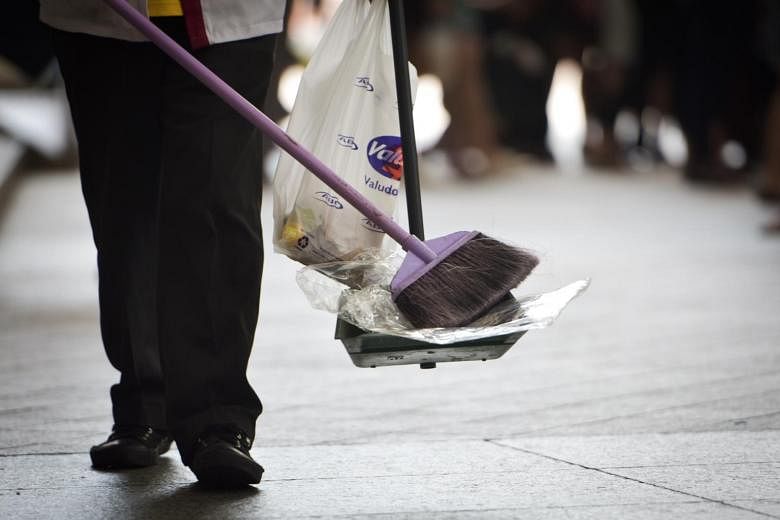SINGAPORE - As Singapore presses on with efforts to transform the economy and develop workers, it also has to strengthen its social compact to ensure that the benefits of growth reach everyone, including low-wage workers, middle-income families and retirees, said Deputy Prime Minister Heng Swee Keat on Friday (Feb 28).
Mr Heng, who is also Finance Minister, said the Budget this year provides further support for those who may face greater pressures. "Some face difficulties with employment and ensuring that growth in their income keeps pace with inflation, despite their best efforts," he noted.
But businesses and the community have a role to play as well, he added, noting that more organisations and groups have stepped forward in this regard.
Nominated MP Walter Theseira, Mr Zainal Sapari (Pasir Ris-Punggol GRC) and Mr Png Eng Huat (Hougang) spoke on the vulnerabilities of low-wage workers during the Budget debate this week.
Mr Heng said the Care and Support Package, which includes grocery vouchers to provide help with daily necessities, will support these workers and their families.
These initiatives come on the back of efforts such as enhancing Workfare for low-income workers, the Progressive Wage Model, which provides a structure for workers in some sectors to earn more through upgrading their skills, and ComCare, a fund that provides social assistance.
He noted that the mayors and the five Community Development Councils have local assistance schemes to support the heartland.
Retirees who had low income in their working years and little to no family support will also get extra help, through the enhancements of Silver Support.
This will benefit 100,000 more seniors and raise payouts by 20 per cent.
Middle-class families, who have to care for both children and elderly parents, also get additional support, with more GST Voucher-U-Save rebates for larger households and Passion Card top-ups for their parents.
Those with young or school-going children also get an extra $100 cash payout per parent.
These measures are in addition to extensive subsidies in education, healthcare and public housing. Last year, middle-income households received two dollars in benefits for every dollar in tax they paid.
Several MPs, including Mr Melvin Yong (Tanjong Pagar GRC), Mr Louis Ng (Nee Soon GRC) and Mr Desmond Choo (Tampines GRC), had spoken about the pressures that these families can face.
Mr Heng said: "Supporting and strengthening families will always be a priority for us, and we will continue to look at how to do so effectively."
He added: "Overall, the measures that we have put in place over the past decade to provide good jobs for our people, develop them at all stages of life, and support the vulnerable, have made a decisive impact in narrowing the income gap."
The Gini co-efficient, which measures income inequality, after taxes and transfers, fell to 0.398 last year. This was the lowest since 2001.
But businesses and the community have growing roles to play as well, in being inclusive and helping those in need through philanthropy and volunteering, Mr Heng said.
He noted that in 2018, individuals collectively donated $2.1 billion through registered organisations, more than double the $960 million donated in 2008.
Around one in two businesses in Singapore also gives back to the wider community through philanthropy and volunteering.
He also lauded the Nominated MPs for their work in various areas, from mental health to championing the arts.
"This is how we should rise to the challenge of inequality in this day and age - by coming together as one people to uplift the less privileged among us, with the state providing strong foundations of opportunity and support," Mr Heng said.


